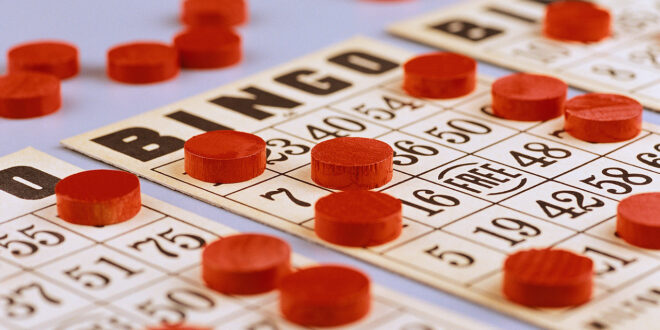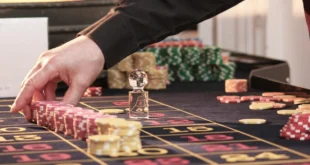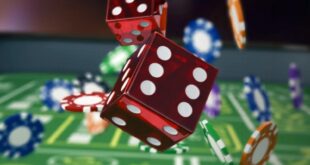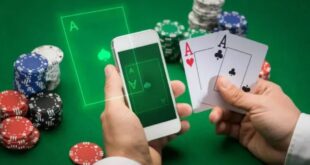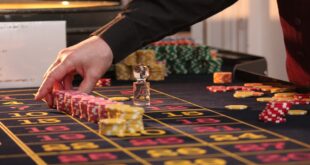Bingo has an auspicious past. It is estimated to be over 490 years old, and it is still as popular as it was in its early days. That’s pretty impressive, considering the modern penchant of always seeking new things as part of our throw-away society. Consequently, it’s worth considering a list of the important highlights in bingo’s history.
1. The Italian Lottery
Bingo originated in Italy in 1530 as the state-run lottery, Lo Gioco del Lotto d’Italia. As an interesting side note, you can still play this lottery every Saturday in Italy.
2. Onwards to France and the rest of Europe
The game moved onto France in the late eighteenth century, where it was a favourite of the French aristocracy. By this time, there were several versions of the game. The most popular version of the game utilised a playing card with nine columns and three rows. Each column was marked in increments of ten: the first column was 1 – 10, the second column 11 – 20, and so on, until the ninth and last column that was designated as 81 – 90. Finally, each row included four free spaces.
There was also a bag of wooden chips marked with numbers 1 through 90. And, the caller reached into this bag and randomly selected numbers to call out. The first person to cover a whole row was the winner.
3. British bingo
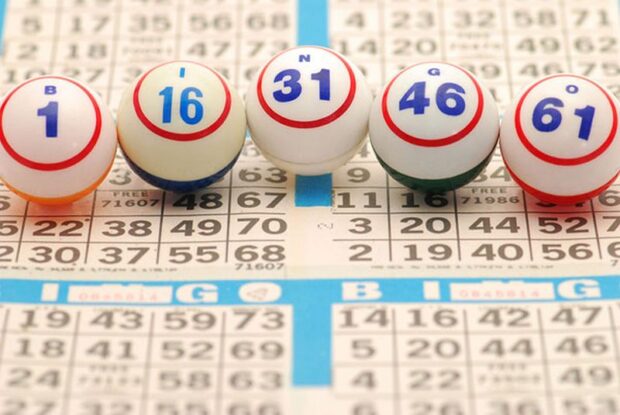
Bingo finally arrived in the United Kingdom, where it gained in popularity, with an increasing number of purpose-built bingo halls opening, until 2005 where the game experienced a slight decline with many of these purpose-built halls closing down.
The advent of online bingo led to its resurgence in prominence and popularity. However, playing the online variant of bingo is illegal for anyone under the age of 18 years old, because the game is considered gambling. Bingo is now part of the UK leisure industry, and it is thought to be worth circa £1.3 billion.
In brick-and-mortar bingo, the gameplay has changed from the caller who manually selected marked wooden chips or balls out of a bag to the use of an electronic random number generator or mechanical draw machine that randomly selects balls from the total 90 balls. Online bingo uses a random number generator to select the numbers that are called out by the electronic caller.
4. Reaching the New World (or the USA)
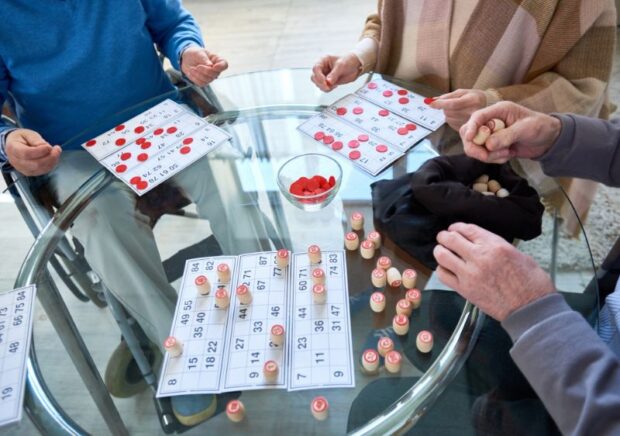
Bingo reached the USA in the early 1920s. It was originally a carnival game popularised and standardised by Hugh J. Ward at carnivals around Pittsburgh and the Western Pennsylvania region. It is assumed that he published a rule book in 1933.
Edwin Lowe first saw the game, “Beano,” being played at a travelling carnival near Atlanta towards the end of 1929. At this stage, people played according to Ward’s rules that were later published by Ward. Lowe introduced the game to his friends in New York, and they loved it. Lowe’s version was slightly different from Ward’s version in that Lowe developed two versions: a 12-card and a 24-card set. And the name became Bingo because one very excited player accidentally blurted out the word “Bingo” instead of “Beano” notifying her co-players that she had won the game.
By the 1940s, bingo was played all over the USA.
Bingo games were originally and still are, hosted by charity organisations and churches. They were usually weekly affairs and were played for modest stakes. It’s interesting to note that this form of bingo was not considered gambling.
Commercial bingo was hosted by casinos in the state of Nevada and in the Native American bingo halls. And, they only catered to local gamblers, not to the tourists in the tourist resorts. These casinos usually hosted one-hour sessions from 9 am to 11 pm, every second hour, on the odd hour.
5. The modern game
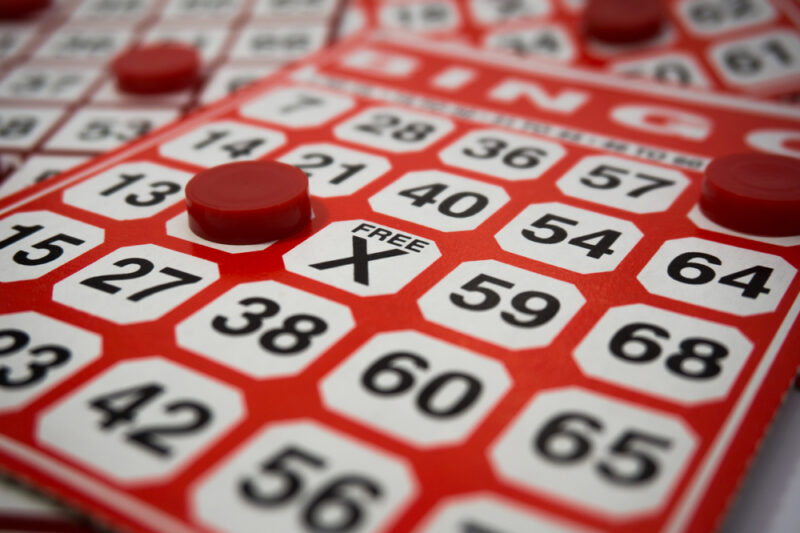
The arrival of the New Normal as a consequence of the global pandemic that is still sweeping across the world has forced all brick-and-mortar casinos and bingo halls to pivot their business models online to keep their company’s afloat and to keep their patrons happy.
Therefore, the way the game is traditionally played has had to change. Some of these changes include the shift from a manual system to an electronic system where a computer programme acts as both the caller and the random number generator that randomly selects which numbers are called. The playing cards are also randomly generated by the app.
As an aside, Bingo and slots are similar, and many slots like these at bestnewbingosites.co.uk include bingo-like mechanisms. Therefore, slots and bingo are often offered in the same package by online casino brands.
Bingo also forms the basis for many lottery games sold through licensed lotteries. A predefined group of numbers is selected by the individual, tickets are sold, and a weekly draw is usually broadcast on television.
6. The house always wins
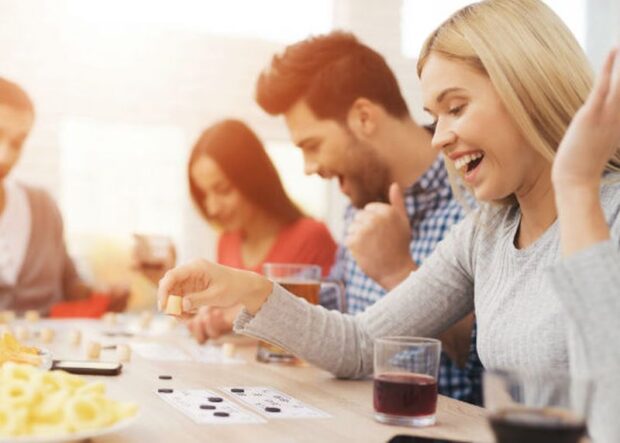
At this juncture, it is important to remember that bingo is a game of chance, and whether played socially or for financial gain, the outcome is solely influenced by a randomising device.
And it is essential to note that when playing commercial bingo, the casino or bingo hall operator is in business to make money. This is known as the house’s edge or margin. Therefore, the jackpots that will be on offer will always exclude the casino’s profit or operating costs.
Additionally, the computerised random number generators are also not 100% random. They are set up to take the house’s profit into account. The mechanical random number generators found in physical slot machines are totally random.
Finally, when deciding how much to spend on buying bingo tickets, it is critical to remember that the house edge will ensure that you will never make back what you spend, unless you win a jackpot. Unfortunately, the calculated odds of winning a jackpot on games like slots are between 1 in 4 096 and 1 in 33.554 million. Hence, it is safe to assume that the total cost of gambling or playing bingo will always equal to more than what you win.
 Poker Players Alliance Casino & Gambling Articles 2024
Poker Players Alliance Casino & Gambling Articles 2024
